"Information can bring you choices and choices bring power - educate yourself about your options and choices. Never remain in the dark of ignorance." - Joy Page
Hello Steemians!
How have you been? I hope you're all doing great!
Today, I break again my normal posting habit. I'm always impulsive when it comes to decision making, but I always consider the sense of urgency of such decisions. Anyway, I'm about to post a "curie-worthy" (Probably, because I'm really not sure if it qualifies.) post, but there's this idea that was never erased in my mind since that particular moment.
Before I'll tell the story of that particular instance, let me ask you questions first (And please answer them in the comment below.): What are your thoughts about the quote above? Does it evoke a particular feeling or emotion to you? If it does, can you elaborate?
Actually, you don't have to answer those questions. Let me just tell you my thoughts about that quote. While it's true, I believe it's just half of the story. While it's true that one should not remain in the dark of ignorance, how about those who can't afford to educate themselves? How about those who didn't know they have to educate themselves?
The reason why I am starting to ramble things is because of what happened last weekend in Bacolod. Last Saturday, I went to DFA Bacolod to confirm my appointment for my passport (Yay! I'm having a passport! To travel goals it is!). My schedule was 1:00 PM - 2:00 PM, but we arrived in Robinsons Bacolod at 9:50 AM, as 10:00 AM was the schedule of my friend.
When we reached DFA, which is on the second floor, here's what we saw:
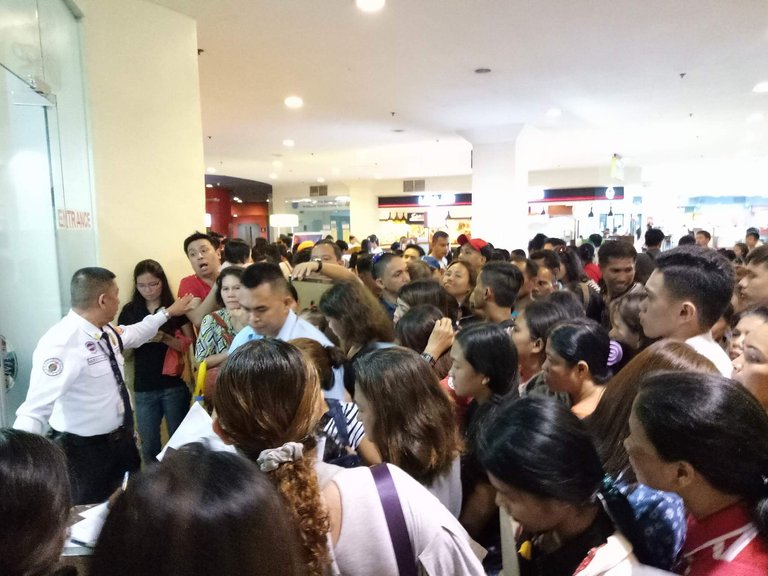
There are tons of people waiting at the outside of DFA to have their passports processed and it's on a weekend, so their acceptance was only until 2:00 PM. Well, there's nothing peculiar here right? Wrong! As there's this fixers thing we witnessed first-hand, which became a norm in most government offices despite the Anti-Fixers Campaign, here's the conversation that struck me the most:
Translated by my friend from Ilonggo, not in verbatim.
Woman: Please let us in, sir!
Guard: We don't allow walk-ins on a Saturday, ma'am.
Woman: We don't know that, sir.
Guard: There's online appointment, ma'am. You can schedule an appointment so you don't have to fall in line.
Others: What's that, sir? The more we don't know that. We don't know how to use the internet.
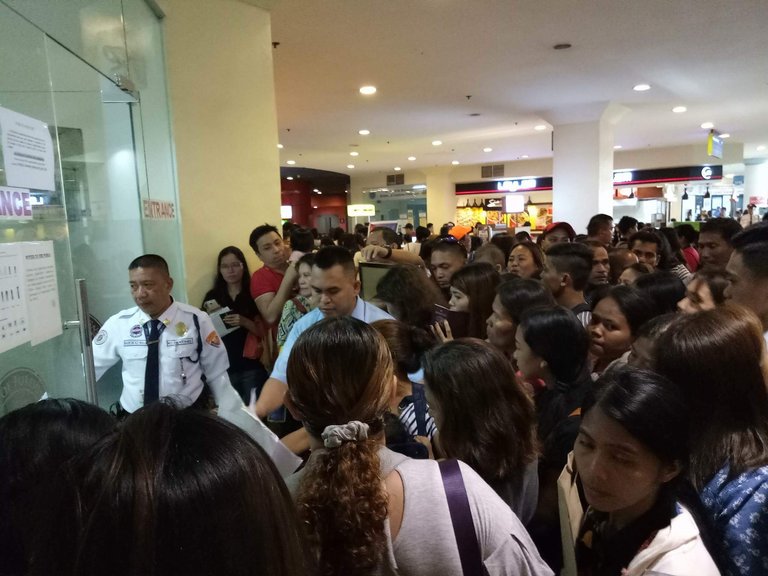
Take note that most of those who waited at the entrance of DFA were women. I believe most of them are mothers coming from rural areas surrounding Bacolod or even as far as Iloilo City. They're women who mostly wanted to go abroad as domestic helpers. That's why they're trying to get their passports processed. Forgive me if I'm wrong in my deductions, but I can't think of another reason why that scenario happened.
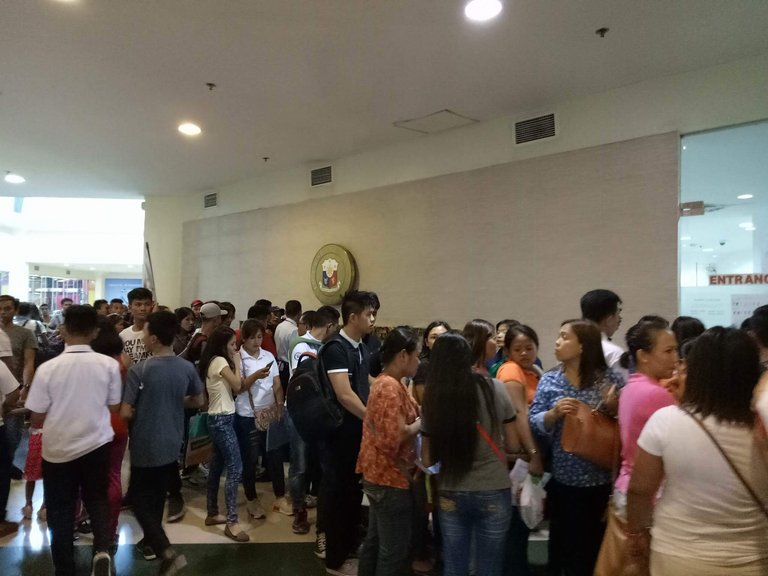
Here comes the question from that scenario: "How can they educate themselves about their options and choices if they weren't even presented with their choices in the first place?".
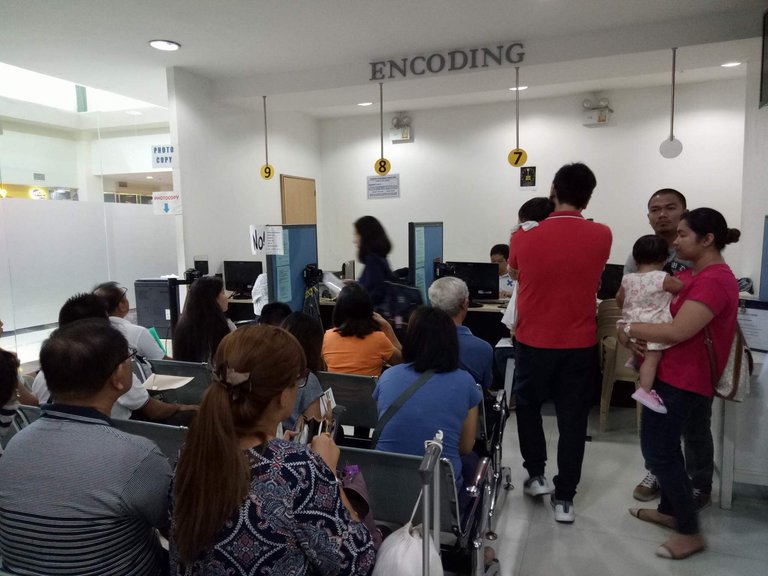
The problem lies not from their inability to make their choices, but on the inability of the institution to present their choices to them. We thought that in this day and age, we all have the access to the information we needed. That's where we entrapped ourselves into. In this fast-paced evolution of technology, there will always be people who will be left behind.
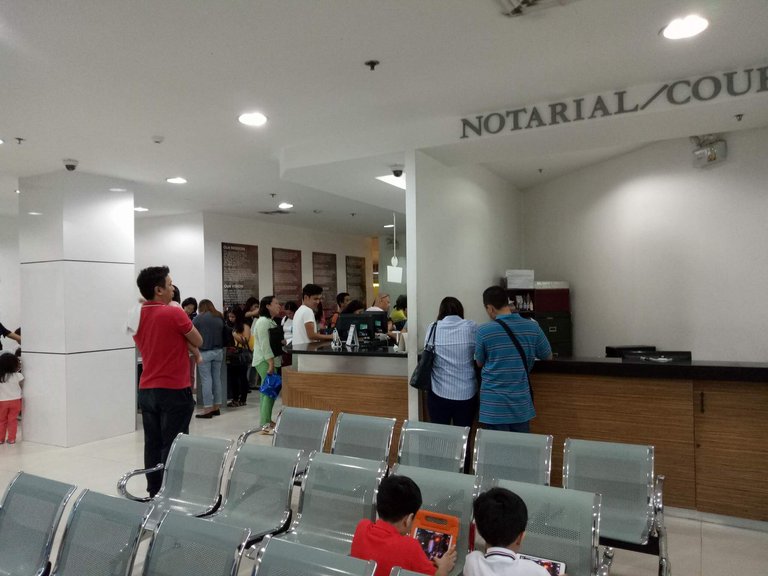
My heart goes out to those who stood outside DFA for hours, waiting and expecting that they can have their passports processed on that day, so that they can go home and be with their family. If not, they would have to come back by Monday and probably encounter the same scenario. For those who can't stand with the idea, they would have to resort to fixers to help them in return for ridiculous amounts which might be too much for them to afford. In the end, they would have to resort to borrowing some cash at a specified interest. It will add to their burden considering some of them have their income working in the sugarcane plantation.
My claims were not too far-fetched because my family had encountered that kind of situation when my father decided to go to Bahrain. I was in elementary then. In my young age, I had faced poverty, so I can actually relate to those kinds of scenario. I knew what it feels like to cut sugarcane under the heat of the sun and earn Php 8.00 at the end of the day.
Some of you might not be able to relate with these ramblings because you were not exposed to those kinds of situations. Anyway, this is not my story, so let's continue.
What Does This Mean To You?
If we are of the same age, you might have a mother who had learned Facebook just recently. You'll get irritated by her when she asks a lot of questions when the answer is just in front of her and all she have to do is press one button. I'm guilty of this, too! I usually nag at her for not figuring it out herself because I thought it was just so easy. We have to recognize that their transition to new technologies is not as smooth as ours. It hit me just after I saw that scene at DFA.
They need someone to guide them to their options in order for them to make the decision themselves.
Regardless of their desire to lift themselves up from the situation they're from, if they don't have the options presented to them, then everything they do will be in vain.
We must do everything we can to raise awareness about the changes in our government institutions.
In order to do that, we must be aware on what information to disseminate. It would be easy for us since we are all presented with our options. It will be good if we are always ready to help if we are faced with someone who needs help. This is of course, related to access of information.
I don't care if this post will attract @cheetah. I will present this quote which would compliment with the quote above:
"Literacy is a bridge from misery to hope. It is a tool for daily life in modern society. It is a bulwark against poverty, and a building block of development, an essential complement to investments in roads, dams, clinics and factories. Literacy is a platform for democratization, and a vehicle for the promotion of cultural and national identity. Especially for girls and women, it is an agent of family health and nutrition. For everyone, everywhere, literacy is, along with education in general, a basic human right.... Literacy is, finally, the road to human progress and the means through which every man, woman and child can realize his or her full potential." - Kofi Annan
The quote by Kofi Annan mentioned women, which correlates with what happened. It says education is a basic human right. It applies not only to the four corners of the classroom, but also to practical pieces of information which are needed by those who wanted to fare with the world.
Please help me equalize the level of disparity to access of information. You can do it in your own way. That one situation is just an example. I will start with Project L.I.B.R.O. Together with my organization, we will continue to go places where no one will dare to go. We will set up mini libraries as many as we can. In general, it's all about access to information.
I hope that this post will spark something in you. If it touches your heart in one way or another, feel free to comment below. Violent reactions are also welcome. I will really appreciate it if you spill out what you think. Danke!
Hanggang sa muli,
Kim, @ybanezkim26
You have some good points here. Education is vital, but too many people (especially women and girls) do not have access to education. I love the idea of setting up mini libraries, and I think it's important to remember that some things we take for granted (like the internet) are not always normal for other people. Patience and compassion are gifts we can extend all people.
My parents don't know what computer is since we lived in a remote area. You are right, government institutions should provide options. Thank you for this nice post. I'm happy there are people like you who wanted to make a difference. I wish your organization the best!
Thank you @orhem! I just felt I need to break the status quo. I have sympathy for those people because I was once like them. I also grow up in a remote barangay and access to information was once very difficult for me.
Looking forward to your post about your organization Project L.I.B.R.O. It sounds interesting. I am also indulge in joining charity events . We have at our office called helping hands. It aims to reach out street children by simply giving foods and used clothes. Keep it up!
We are still arranging the necessary preparations for our next activity. This is for our 3rd beneficiary. I'll probably post in the coming days.
Will look into it. Thanks!
This is a universal sad truth actually. Some people advance, some people get left behind. The problem is, only a few are willing to help those people left behind. We can actually witness this first hand in a classroom setting.
Thank you for pointing that out @barnuts! It's actually true in a classroom setting. Many were left behind, but no one cares. Wait. Let me correct that. Only a few cares about those were left behind.